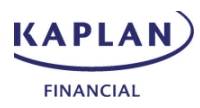Related Research Articles

An accountant is a practitioner of accounting or accountancy. Accountants who have demonstrated competency through their professional associations' certification exams are certified to use titles such as Chartered Accountant, Chartered Certified Accountant or Certified Public Accountant, or Registered Public Accountant. Such professionals are granted certain responsibilities by statute, such as the ability to certify an organization's financial statements, and may be held liable for professional misconduct. Non-qualified accountants may be employed by a qualified accountant, or may work independently without statutory privileges and obligations.

The Chartered Institute of Management Accountants (CIMA) is the global professional management accounting body based in the UK. CIMA offers training and qualification in management accountancy and related subjects. It is focused on accountants working in industry and provides ongoing support and training for members.
The Institute of Chartered Accountants of Scotland (ICAS) is the world's first professional body of Chartered Accountants (CAs).

The Institute of Chartered Accountants in England and Wales (ICAEW) is a professional membership organisation that promotes, develops and supports chartered accountants and students around the world. As of December 2023, it has over 208,000 members and students in 146 countries. ICAEW was established by royal charter in 1880.

Chartered accountants were the first accountants to form a professional accounting body, initially established in Scotland in 1854. The Edinburgh Society of Accountants (1854), the Glasgow Institute of Accountants and Actuaries (1854) and the Aberdeen Society of Accountants (1867) were each granted a royal charter almost from their inception. The title is an internationally recognised professional designation; the certified public accountant designation is generally equivalent to it. Women were able to become chartered accountants only following the Sex Disqualification (Removal) Act 1919 after which, in 1920, Mary Harris Smith was recognised by the Institute of Chartered Accountants in England and Wales and became the first woman chartered accountant in the world.

Founded in 1904, the Association of Chartered Certified Accountants (ACCA) is the global professional accounting body offering the Chartered Certified Accountant qualification (ACCA). It has 240,952 members and 541,930 future members worldwide. ACCA's headquarters are in London with principal administrative office in Glasgow. ACCA works through a network of over 110 offices and centres in 51 countries - with 346 Approved Learning Partners (ALP) and more than 7,600 Approved Employers worldwide, who provide employee development.

The Association of Accounting Technicians (AAT) is a professional body for Accounting Technicians, with over 150,000 members worldwide.

The Chartered Institute of Public Finance and Accountancy (CIPFA) is a UK based organisation for accountants who work in the public sector, accounting firms and other professional bodies where management of public funds are required. CIPFA is the only UK professional accountancy organisation who is dedicated to public financial management. They currently have approximately 14,000 members. They offer qualifications including a professional qualification for public sector accountants as well as a postgraduate diploma for people already working in management.

Kaplan Financial Ltd is a British company providing training in accountancy and financial services. It was founded in 1958. Kaplan Financial is part of Kaplan, Inc., a subsidiary of Graham Holdings Company. Kaplan Financial has more than 48,000 students a year, both in the UK and overseas. It offers courses in 28 training centres throughout the UK as well as home study and online learning.
The Consultative Committee of Accountancy Bodies (CCAB) is an umbrella group of chartered professional bodies of British qualified chartered accountants. The primary objective of the CCAB is to provide a forum for the member bodies to discuss issues of common concern, and where possible, to provide a common voice for the accountancy profession when dealing with the United Kingdom government.
The Association of Corporate Treasurers (ACT) is the international professional body specialising in the profession of corporate treasury. It was founded in 1979 and was awarded a Royal Charter on 1 January 2013. It is both an examining body, providing a wide range of qualifications for those working in treasury, risk and corporate finance, and a membership organisation which supports and represents its members.
Accountancy in Hong Kong is regulated by the HKICPA under the Professional Accountants Ordinance. The auditing industry for limited companies is regulated under the Companies Ordinance, and other Ordinances such as the Securities and Futures Ordinance, the Listing Rules, etc.
The Association of International Accountants (AIA) is a professional accountancy body. It was founded in the UK in 1928 and since that date has promoted the concept of ‘international accounting’ to create a global network of accountants in over 85 countries worldwide.

The Pakistan Institute of Public Finance Accountants (PIPFA) is an autonomous body recognized mainly in the government sector and established under license from the Securities and Exchange Commission of Pakistan by the authority given under section 42 of the Companies Ordinance, 1984.
The accountancy profession in Malaysia is regulated by the Malaysian Institute of Accountants (MIA) through the powers conferred by the Accountants Act, 1967. The MIA is an agency under the Ministry of Finance and reports directly to the Accountant General Office. As at 4 February 2016, MIA has 32,618 members of which 68% are involved in commerce and industry, 22% in public practice and 10% in government and academia. Selangor and the Wilayah Persekutuan Kuala Lumpur Federal Territory have the largest concentration of MIA membership with 13,125 and 7,351 members respectively. https://web.archive.org/web/20150725035639/http://www.mia.org.my/new/members_statistics_state.asp
CPA Ireland, formerly the Institute of Certified Public Accountants in Ireland, is one of the main Irish accountancy bodies, with 5,000 members and students.
Herbert Jeffrey Wooller is an English accountant and educationalist. He is noted for his accountancy tuition initiatives, and for campaigning for reform of his professional institute, the Institute of Chartered Accountants in England and Wales. The institute eventually excluded him from its membership because of his association with the Irish International University, Irish University Business School and International University Business School. Wooller has founded several educational institutions such as the Jeff Wooller College, Institute of Professional Financial Managers and Irish University Business School.
The Accounting in Sri Lanka is regulated under the several legal regulations. There are several professional accountancy body in the country. The Sri Lanka Accounting and Auditing Standards Monitoring Board (SLAASMB) is the audit oversight entity, while the Auditor General of Sri Lanka has audit oversight over government all entities.
References
- ↑ "Top 5 Occupations At Risk From Professional Indemnity Claims". OBF.ie. 28 March 2018. Retrieved 9 May 2018.
- 1 2 3 4 Current RSBs and RQBs, Financial Reporting Council
- ↑ "CIPFA Recognised for Companies Act Audit". CIPFA. Archived from the original on 2008-04-17. Retrieved 2011-01-03.
- ↑ Professional Oversight Board Archived December 26, 2010, at the Wayback Machine
- ↑ Recognised Supervisory Bodies, Register of Statutory Auditors
- ↑ Join us as a member of another professional body, ICAEW
- ↑ Cima to leave CCAB accountancy forum, Public Finance, 2 March 2011